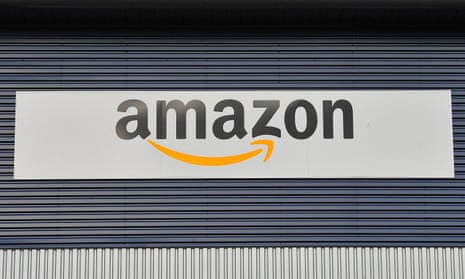Amazon and eBay have been accused by MPs of profiting from VAT evasion at the expense of taxpayers and UK businesses.
Executives representing the ecommerce groups were told that their firms were “turning a blind eye” as organised criminals in the UK and China handle undervalued or misclassified goods for the British market.
The criticisms were made on Wednesday at a meeting of the public accounts committee, parliament’s spending watchdog, which is investigating online VAT fraud. In recent years overseas sellers, particularly from China, have come to dominate many popular goods categories on eBay and Amazon, illegally selling products into the UK without paying VAT. As a result, many small British businesses have been undercut.
In April the National Audit Office disclosed that failure to declare tax from online retailers outside the EU lost HM Revenue & Customs up to £1.5bn.
On Wednesday Caroline Flint, a Labour member of the committee, repeatedly challenged Joe Billante, an eBay vice-president, and Steve Dishman, a vice-president at Amazon, over their failure to stop fraudsters from using their services.
She said both firms were actively encouraging overseas sellers from China to use their platforms and were charging them a fee.
“Whatever your relationship to the seller, the byproduct of Amazon and eBay and other online marketplaces is that you are profiting from the evading of tax by these overseas sellers. That is a fact, isn’t it?” Flint said.
Billante replied: “We don’t want any of these sellers on our platform. If we are notified, we take action.”
Dishman acknowledged there was a problem. “We need all sellers to compete equally. That is what we are focused on,” he said.
Meg Hiller, the chair of the committee, said both retailers were still taking a commission from overseas-based firms who were defrauding the taxpayer. Online sales accounted for 14.5% of all UK retail sales in 2016, making the UK the biggest online market in Europe after an increase of more than 12 percentage points in a decade.
Just over half of all online sales were non-store sales, mainly through marketplaces such as Amazon and eBay. Some overseas sellers now choose to export their goods to the UK and store them in “fulfilment houses” before selling them to UK consumers through online marketplaces.
Tax rules require that all traders based outside the EU who are selling goods online to customers in the UK should charge VAT if their goods are already in the UK at the point of sale. Amazon and eBay say it is the legal responsibility of the sellers who trade on their platforms to determine and declare any VAT that arises from the sale of goods or services.
Tax officials from HMRC also came in for criticism from MPs for not enforcing the rules effectively enough. Prof Rita de la Feria, a tax expert, told the committee that HMRC’s failings were allowing firms to avoid paying their dues.
Jon Thompson, permanent secretary of the HMRC, called for legal changes to make firms such as Amazon liable for paying some of the VAT.
Richard Allen, from the campaign group Retailers Against VAT Abuse Schemes, said many of the goods that were imported from foreign sellers were dangerous. “Twenty per cent is a large sum of money, and if your competitors are avoiding the 20% you can’t compete,” he added.
Some of the MPs on the committee said they had completed mystery shopping exercises and found firms without VAT numbers. Hillier said she had been offered a 20% discount after she had asked for a VAT number.
The Conservative MP Gillian Keegan said she had bought lightbulbs from one firm which then did not respond when asked to provide a VAT number. “It’s very easy to find these sellers, so it would be very easy for you to put in better practices to stop this fraud happening,” she said.
Amazon has previously been accused of not paying its fair share of corporation tax in the UK. It paid just £7.4m last year despite billions in sales. A report said booksellers paid 11 times more tax than Amazon.
